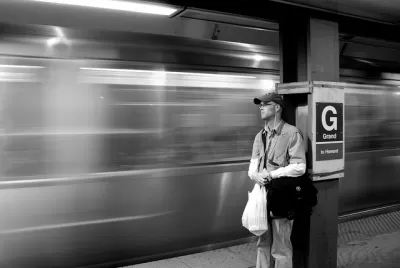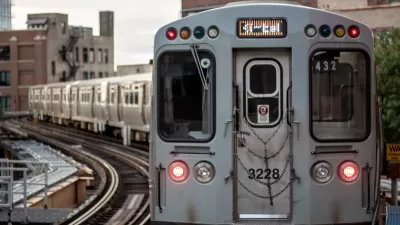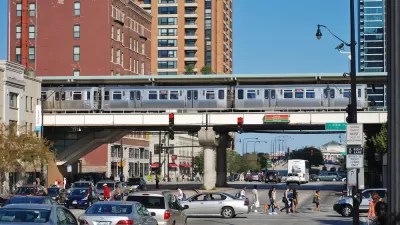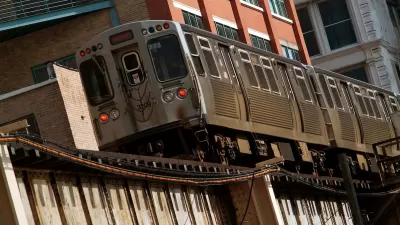The Chicago Transit Authority Board voted unanimously to raise fares, despite shrinking ridership.

The Chicago Transit Authority (CTA) will raise its fares by $.25. The increase comes after budget cuts from the state and fare hikes from the city's other two transit agencies. "The 2018 fare increase — the first across-the-board increase in nine years — is intended to help fill a more than $33 million hole caused, in part, by a drop in state funding for the transit service, which provides about 1.6 million rides every weekday," Mary Wisniewski reports for the Chicago Tribune.
The CTA also faces an issue of shrinking ridership, a problem the agency blames in part on low gas prices and the growth of ride share services. "Charles Paidock, secretary of the transit riders' advocacy group Citizens Taking Action, said the state budget cuts were not an emergency that justified a fare increase, and that the hike will only add to the CTA's problems of shrinking ridership," Wisniewski writes.
The budget now needs the approval of the regional transit authority. If it gets okayed the hike will go into effect January 7.
FULL STORY: CTA OKs 25-cent fare hikes as watchdog group gives thumbs down to budget

Study: Maui’s Plan to Convert Vacation Rentals to Long-Term Housing Could Cause Nearly $1 Billion Economic Loss
The plan would reduce visitor accommodation by 25,% resulting in 1,900 jobs lost.

North Texas Transit Leaders Tout Benefits of TOD for Growing Region
At a summit focused on transit-oriented development, policymakers discussed how North Texas’ expanded light rail system can serve as a tool for economic growth.

Why Should We Subsidize Public Transportation?
Many public transit agencies face financial stress due to rising costs, declining fare revenue, and declining subsidies. Transit advocates must provide a strong business case for increasing public transit funding.

How to Make US Trains Faster
Changes to boarding platforms and a switch to electric trains could improve U.S. passenger rail service without the added cost of high-speed rail.

Columbia’s Revitalized ‘Loop’ Is a Hub for Local Entrepreneurs
A focus on small businesses is helping a commercial corridor in Columbia, Missouri thrive.

Invasive Insect Threatens Minnesota’s Ash Forests
The Emerald Ash Borer is a rapidly spreading invasive pest threatening Minnesota’s ash trees, and homeowners are encouraged to plant diverse replacement species, avoid moving ash firewood, and monitor for signs of infestation.
Urban Design for Planners 1: Software Tools
This six-course series explores essential urban design concepts using open source software and equips planners with the tools they need to participate fully in the urban design process.
Planning for Universal Design
Learn the tools for implementing Universal Design in planning regulations.
Ascent Environmental
Borough of Carlisle
Institute for Housing and Urban Development Studies (IHS)
City of Grandview
Harvard GSD Executive Education
Toledo-Lucas County Plan Commissions
Salt Lake City
NYU Wagner Graduate School of Public Service





























